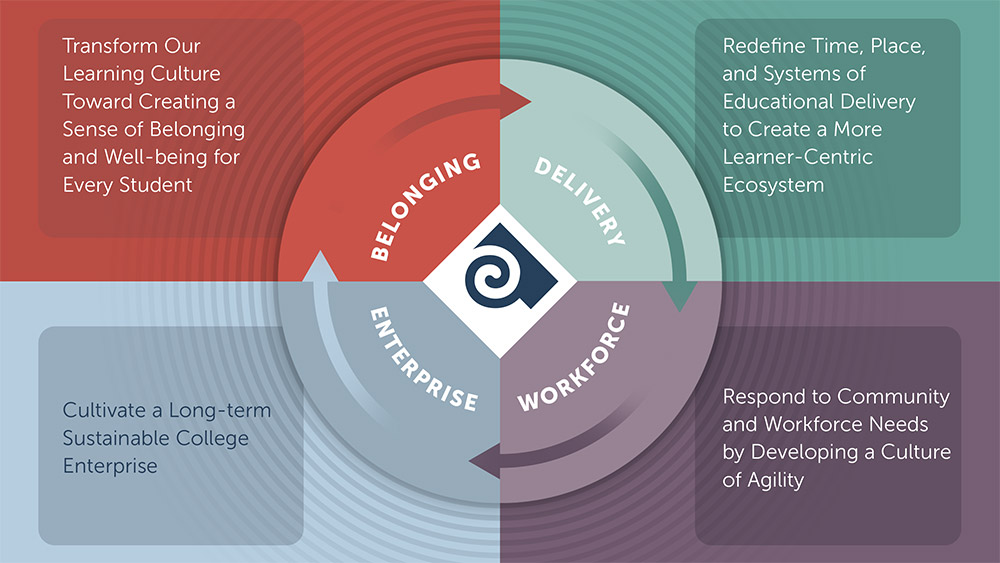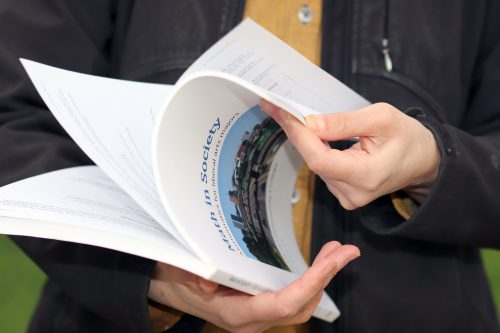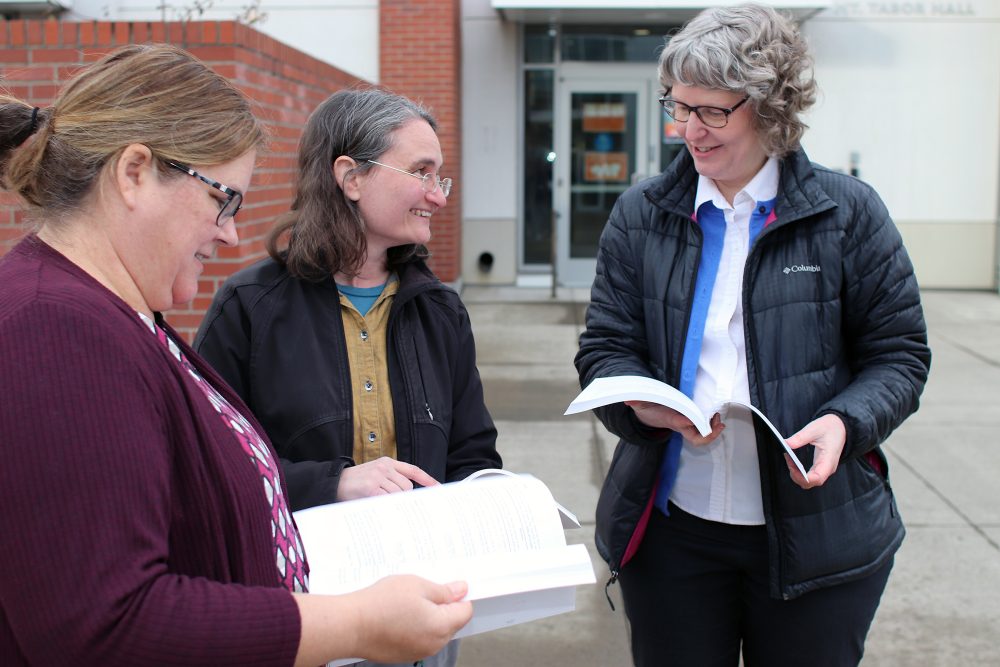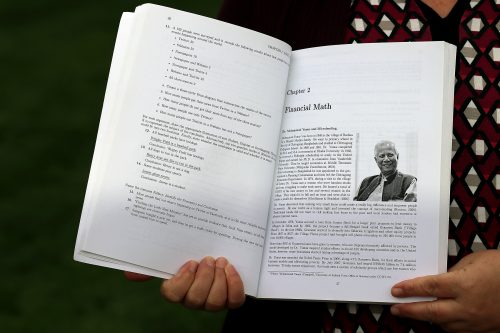This content was published: February 14, 2022. Phone numbers, email addresses, and other information may have changed.
PCC’s shift to more open educational resource materials to save students money
Story & Photos by Amy Bader & James Hill.
At Portland Community College, the vital work of hundreds of employees providing students with an alternative to high-priced textbooks and classroom materials has paid off in a big way.
During the 2019-21 biennium, PCC students saved nearly $10 million, which is a 21% increase in savings from similar efforts in 2017-19. In the current biennium, Open Oregon awarded PCC 18 grants to complete Open Educational Resources (OER) projects and those courses have saved 2,200 students an additional $280,000 since last summer.

The Strategic Plan: Delivery
The 2020-2025 Strategic Plan prepares the college for the future of higher education. For the Delivery strategic area of focus, the college looks to redefine time, place, and systems of educational delivery to create a more learner-centric ecosystem.
OER are course materials that have an open license, allowing educators to share and adapt resources and redistribute them to students either free online or at a low cost in print.
“We hear from students over and over again, articulating that textbook costs are a barrier to their learning,” said Jen Klaudinyi, faculty librarian and OER coordinator for PCC. “Students have to make all sorts of choices related to their education, and many say they have to choose between rent or food, which means they can’t engage in classes and learning in a way they would like because it’s a cost barrier.”
Back in 2015, PCC’s OER Steering Committee was created in response to the skyrocketing cost of textbooks. In 2019, the state legislature passed a bill that requires every college and university in Oregon to create a textbook affordability plan. This empowers students to make informed decisions on their textbook purchases and weigh the benefits of no- and low-cost textbooks.
The committee now acts as a coordinating group for the college’s planning around this requirement, developing PCC’s Textbook Affordability Plan last June. The plan lays out goals for how PCC will work collaboratively to ensure equitable and affordable access to course materials.
A Formula for Success
The new online textbook for the class “Math 105” is one of the latest examples of faculty stepping up. Led by math instructor and department chair Cara Lee, instructors Jess Brooks, Cindy Rochester-Gefre, Sonya Redmond, Thomas Songer, Jeff Lacks, Kandace Kling, Eric Zupunski, Teela Foxworth, and Emiliano Vega published their revised textbook “Math in Society” to serve as the official class textbook in 2020.
After the first year as the official textbook and the two previous pilot years, more than 3,000 PCC students have saved an estimated $400,000.
“OER is about equitable access to education,” said Lee. “It’s simple math (pun intended). By reducing extra costs, college automatically becomes more affordable and accessible to people with less money.”
Open resources not only offer the college more low-cost options for students, they allow the instructors to tailor the learning objectives to make the curricular materials more representative of the students’ experiences and can involve student voices in the creation and selection of materials. The faculty team worked to make the materials feel more relevant to students by including local content and exploring ways to ensure students could see themselves in the text.
“I’ve taught for 30 years, and hands down this whole experience was the most powerful professional development I’ve ever been involved in,” said Rochester-Gefre. “The conversations we had about the curriculum have changed the way I look at teaching. I think about the subtle things I can do to open students’ eyes and to teach social justice, and I make sure that when students sign up for a class with me it’s a zero cost class outside of tuition – no book, no calculator. I’m passionate about the fact that tuition is enough.”
The Social Justice Angle
The instructors teach history and social justice through math. Lee said math comes up in real life for every student – like filing taxes and learning how electoral votes are determined. With this OER partnership, she said the math program is able to expand on this equity work to tailor a free, culturally responsive textbook for its students.
“‘Math in Society’ is popular with students because the curriculum is so relevant to students’ lives,” Lee added.
Another way the team has worked to make sure people see themselves in this book is by highlighting the accomplishments and impact of mathematicians from historically underrepresented communities. Each chapter features a different bio of mathematicians from around the world for students to learn about.
In addition, the college offers the Equity and Open Education Faculty Cohort in partnership with Open Oregon Educational Resources, a professional development course that brings faculty together over the course of four weeks to explore ways to transform curriculum using an equity lens.
Lee and Brooks have been presenting at conferences and colleges around the Northwest to share the culturally responsive features of the book, and it has been adopted by faculty around the region. In addition, Foxworth, who is a communications studies and race and racism instructor, collaborated with the team to include racial historical context to the textbook.
“PCC is really showing a lot of leadership, and in particular the math department has been finding ways to work through accessibility barriers that math can present online,” said Amy Hofer, statewide Open Education Program director.


